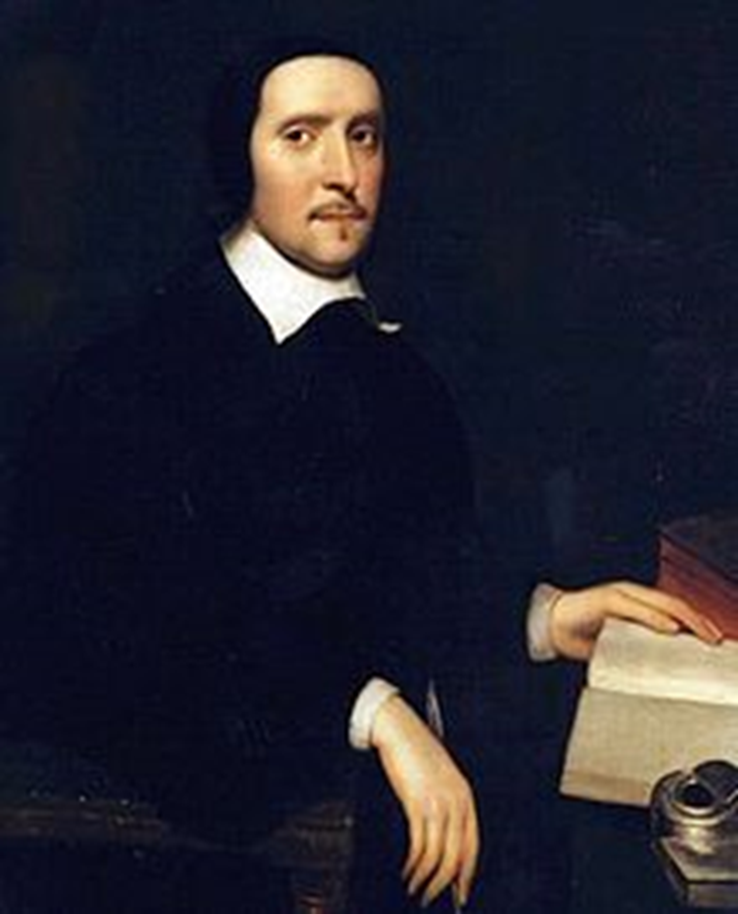Bishop Jeremy Taylor quatercentenary celebration
- 24 April 2013
Jeremy Taylor (1613 - 1667), is among the most distinguished of all Caians, who began his College life as a sizar (a poor scholar), and afterwards became a Fellow. His intellectual and spiritual gifts made him one of the most influential Christian writers of the seventeenth century. A detailed biography is available here. His outlook was, in its time, remarkable for its ecumenism and support of religious toleration. Despite periods of difficulty both during the civil war (in which he was imprisoned for a time) he wrote tirelessly to commend Christian faith through devotional works remarkable for their practical usefulness to ordinary people. He composed the first English life of Christ, The Great Exemplar, mixing the story with reflection and prayer, as well as the two extraordinarily popular manuals of prayer, Holy Living and Holy Dying.
His life and work will be celebrated throughout the Easter Term 2013;
- each Sunday a distinguished preacher will explore one of his writings;
- on Sunday 5th May, Taylor’s successor as Bishop of Connor will visit the College to preach and dine afterwards. The Taylor portrait will be on display in Hall for this occasion.
- two new anthems have been composed for the Choir and will be premiered during Evensong on 5th and 12th May (Full Chapel music list available here);
- this summer, on Taylor’s memorial day (13th August) the College Choir will sing a Radio 3 broadcast choral evensong from N. Ireland, where Jeremy Taylor was Bishop, and where he is buried (in Dromore cathedral church which he had built).
The Dean.
From XXV Sermons(1653), Sermon V:
For so have I seen a lark rising from his bed of grass and soaring upwards, singing as he rises, and hopes to get to heaven, and climb above the clouds; but the poor bird was beaten back with the loud sighings of an eastern wind, and his motion made irregular and un-constant, descending more at every breath of the tempest than it could recover by the libration and frequent weighing of his wings, till the little creature was forced to sit down and pant, and stay till the storm was over; and then it made a prosperous flight, and did rise and sing, as if it had learned music and motion from an angel as he passed sometimes through the air about his ministries here below; so is the prayers of a good man.
From A DISCOURSE OF THE LIBERTY OF PROPHESYING (a plea for religious toleration: 1657):
It is unnatural and unreasonable to persecute disagreeing opinions: ...you may as well cure the colic by brushing another man’s clothes. Force in matters of opinion can do no good, but is very apt to do hurt...
I end with a story which I find in the Jews books. When Abraham sat at his tent door, according to his custom, waiting to entertain strangers; he espied an old man stooping and leaning on his staff, weary with age and travel, coming towards him, who was an hundred years of age. He received him kindly, washed his feet, provided supper, caused him to sit down, but observing that the old man eat and prayed not, nor begged for a blessing on his meat, he asked him why he did not worship the God of heaven : the old man told him, that he worshipped the fire only, and acknowledged no other God; at which answer, Abraham grew so zealously angry, that he thrust the old man out of his tent, and exposed him to all the evils of the night and an unguarded condition. When the old man was gone, God called to Abraham, and asked him where the stranger was; he replied, I thrust him away, because he did not worship Thee : God answered him, I have suffered him these hundred years, although he dishonoured Me, and couldst not thou endure him one night, when he gave thee no trouble? Upon this, saith the story, Abraham fetched him back again, and gave him hospitable entertainment, and wise instruction. Go thou and do likewise, and thy charity will be rewarded by the God of Abraham.


